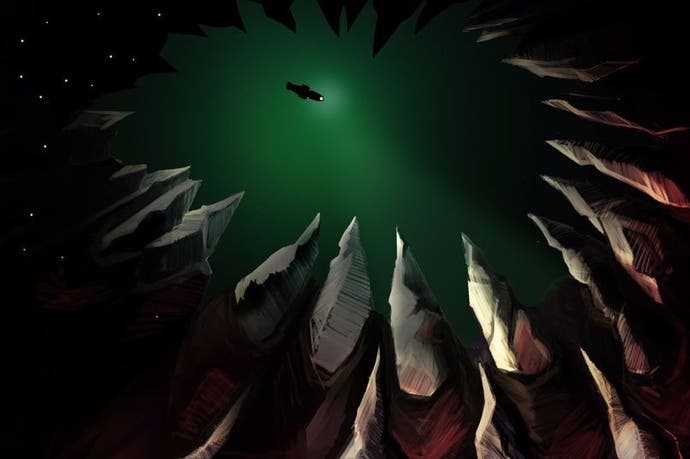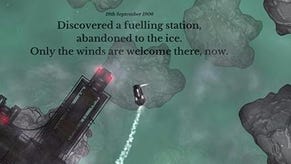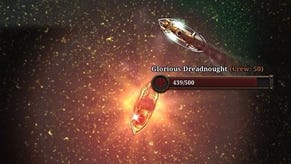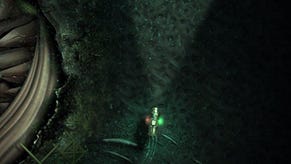Sunless Sea - Zubmariner review
DOS boot.
'The air trembles. A breath of change passes.' As it ever has down here in the Unterzee, the subterranean archipelago where London wound up after the ground gave way, where islands jostle for position as you live the gloomy lives of a succession of sea captains. This time, however, change runs fathoms deep. Depending on the state in which you left your ship and fortune in Failbetter's masterpiece, the journey toward owning your first submergible vessel may be long and onerous. After all, the Admiralty doesn't sanction this arcane contraption. Most shipbuilders will shrug or recoil if presented with an order for one.
On one of Her Majesty's distant colonies, however, a research team with a hidden workshop, funded by a chunky philanthropist (whose accent has "a hint of Midlands melancholy to it") tinkers illicitly. Bring these engineers money and schematics and, eventually, they'll find a way to modify your ship, and all ships that follow it into your possession, to dive beneath the waves. And in this way, a breath of changes passes again, opening the door to a netherworld within a netherworld.
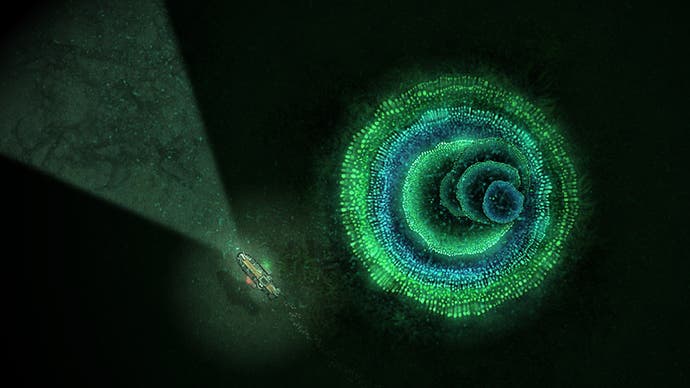
Eleven ports await your arrival down there on the wriggling seabed. There's Wrack, a city built from the hulls of wrecked vessels, whose gaunt king beseeches you to lure trading vessels into its trap waters for cash. There's Anthe, whose inhabitants slowly turn to crystal (will you join them?). There's Dahut, an exact replica of London, where visitors are able to breath water like it was air. And beyond the ports, with their caged entrances, you'll also be able to see what lies beneath Sunless Sea's familiar landmarks: the Sea of Statues, Mount Palmerston, and the forsaken Dawn Machine. The best news of all, perhaps is that you're finally able to visit Low Barnet, whose weird customs include rap-battle style story-offs.
The world closes in, under dark water. Visibility is low, so you have to rely upon your ship's blipping bursts of Sonar. This works much like the faithful Zeebat that you sent out, dove-like, in search of land when above water (the only difference being that Sonar triggers automatically, every twenty seconds or so). Each pulse will light up nearby points of interest as swarms of mysterious blue light. Not until you draw near, however, and your lamp sweeps across the object will you know whether it's a recent wreck, with a gasping sailor waving at the porthole, or some new terror of the deep, waiting to wrap its tentacles around your vessel. Zubmariner's systems of curiosity and peril enforce its theme.
Less authentic is the problem of perspective. It's often difficult to know whether the silhouette you're approaching on the seabed is a gaping hole leading downwards (in some places, you can descend two, three times deeper still into an abyss), or a bruising tower of rock. You'll injure your craft regularly mistaking one for the other. And while the underwater world provides a useful escape route from powerful pirate ships or swarms of angry birds, it's just a hazardous, with marauding pirate zubs, and clumps of life-sapping witherweed.
The writing throughout is exemplary, every snippet of text conjuring thick atmosphere. 'The observation dome is silent,' one of the game's regular snippets of flavour text reads. 'Your navigator's breath is loud in the stillness.' Visit one forsaken wreck in your diving suit and, after the hull door opens with a disquieting crunch, a crewman stops "to pick bits of skull from his boot." You feel the unique mix of stuffiness, serenity and dread that comes with descending into water inside a metallic tube in every well-balanced phrase. That melancholic soundtrack, subtly muffled every time you submerge, helps to further close the world around you. Sunless Sea's wistful, mournful tone may be familiar, but this is another world, down here.
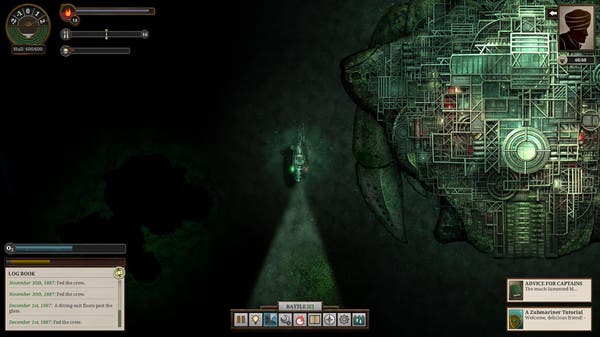
In practical terms, Zubmariner happily increases the number of stops you can make when embarking on a round trip. This increases the earning potential of each sojourn, as you're able to almost double the number of port reports you can collect and sell to Fallen London's Admiralty office (or now, if you so choose, in Low Barnet). It also means there are more places to fill up on fuel and supplies - the twin resources upon which, more than any thing else, your and your crew's lives depend. In a curious way, this expansion is of greatest benefit to newcomers, whose journeys will be eased, and chances improved by the addition of so many (broadly) welcoming ports.
For more experienced Sunless seamen, who already own muscular ships and heavy pockets, the addition of these murky pit-stops is of less consequence. This places pressure on the storytelling to provide the draw. It's a challenge that Failbetter's clutch of writers and designers - who are the best this side of The Witcher 3 - ably meet. Narrative vignettes unfurl in exquisite ways, and as you juggle multiple storylines at once (plots often advance only when you've returned to your house in London for a good night's rest) your head is filled with reasons to keep playing - threads of story that need to be tied up, before your captain can reasonably retire. Zubmariner adds breadth to its depth, then - a literal and masterly expansion of its world, as well as of its story.
